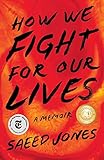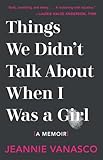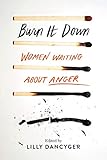We wouldn’t dream of abandoning our vast semi–annual Most Anticipated Book Previews, but we thought a monthly reminder would be helpful (and give us a chance to note titles we missed the first time around). Here’s what we’re looking out for this month—for more October titles, check out our Second-Half Preview. Let us know what you’re looking forward to in the comments!
Want to know about the books you might have missed? Then go read our most recent book preview. Want to help The Millions keep churning out great books coverage? Then sign up to be a member today.
 Find Me by André Aciman: In a most-anticipated list, Aciman’s Find Me may be the most anticipated of all. Set decades after Oliver and Elio first meet in Call Me by Your Name, this novel follows Elio’s father Samuel, who while traveling to Rome to visit his son meets a young woman who changes his life; Elio, a classical pianist who moves to Paris; and Oliver, a New England college professor and family man who yearns to return to Italy. I’m aching to read this and I know I’ll be aching while reading it too. (Carolyn)
Find Me by André Aciman: In a most-anticipated list, Aciman’s Find Me may be the most anticipated of all. Set decades after Oliver and Elio first meet in Call Me by Your Name, this novel follows Elio’s father Samuel, who while traveling to Rome to visit his son meets a young woman who changes his life; Elio, a classical pianist who moves to Paris; and Oliver, a New England college professor and family man who yearns to return to Italy. I’m aching to read this and I know I’ll be aching while reading it too. (Carolyn)
 The Topeka School by Ben Lerner: The pre-pub blurbs for Lerner’s third novel are ecstatic, with his publisher calling it a breakthrough and Claudia Rankinedescribing it as “a powerful allegory of our troubled present.” Set in late 1990s Kansas, it centers on a lefty family in a red state. The mother is a famous feminist author; the father, a psychiatrist who specializes in “lost boys.” Their son, Adam Gordon, is a debate champion who unwittingly brings one of his father’s troubled patients into his friend group, to disastrous effect. (Hannah)
The Topeka School by Ben Lerner: The pre-pub blurbs for Lerner’s third novel are ecstatic, with his publisher calling it a breakthrough and Claudia Rankinedescribing it as “a powerful allegory of our troubled present.” Set in late 1990s Kansas, it centers on a lefty family in a red state. The mother is a famous feminist author; the father, a psychiatrist who specializes in “lost boys.” Their son, Adam Gordon, is a debate champion who unwittingly brings one of his father’s troubled patients into his friend group, to disastrous effect. (Hannah)
 Grand Union by Zadie Smith: Grand Union is the first short story collection of Zadie Smith, the award-winning author of White Teeth and The Autograph Man, among others. Ten unpublished new stories will be put alongside with ten of her much-applauded pieces from The New Yorker and elsewhere. Everything, however familiar or small it may seem in daily life, glows in Smith’s brilliant observation. Grand Union is a wonderful meditation on time and place, past and future, identity and the possibility of rebirth. (Jianan Qian)
Grand Union by Zadie Smith: Grand Union is the first short story collection of Zadie Smith, the award-winning author of White Teeth and The Autograph Man, among others. Ten unpublished new stories will be put alongside with ten of her much-applauded pieces from The New Yorker and elsewhere. Everything, however familiar or small it may seem in daily life, glows in Smith’s brilliant observation. Grand Union is a wonderful meditation on time and place, past and future, identity and the possibility of rebirth. (Jianan Qian)
 How We Fight for Our Lives by Saeed Jones: A 2014 NBCC finalist for his poetry collection Prelude to Bruise, How We Fight for Our Lives tells Jones’ coming-of-age as a black gay boy and man in the South via prose-poetry vignettes. From the publisher: “Blending poetry and prose, Jones has developed a style that is equal parts sensual, beautiful, and powerful—a voice that’s by turns a river, a blues, and a nightscape set ablaze.” (Sonya)
How We Fight for Our Lives by Saeed Jones: A 2014 NBCC finalist for his poetry collection Prelude to Bruise, How We Fight for Our Lives tells Jones’ coming-of-age as a black gay boy and man in the South via prose-poetry vignettes. From the publisher: “Blending poetry and prose, Jones has developed a style that is equal parts sensual, beautiful, and powerful—a voice that’s by turns a river, a blues, and a nightscape set ablaze.” (Sonya)
 Your House Will Pay by Steph Cha: Your House Will Pay is a propulsive and well-plotted novel set in Los Angeles where crime and tension are at an all-time high. In Cha’s narrative that explores race, class, and community in Los Angeles, her characters must confront their histories and truth. Catherine Chungdescribes Your House Will Pay as “a devastating exploration of grief, shame, and deeply buried truths.” (Zoë)
Your House Will Pay by Steph Cha: Your House Will Pay is a propulsive and well-plotted novel set in Los Angeles where crime and tension are at an all-time high. In Cha’s narrative that explores race, class, and community in Los Angeles, her characters must confront their histories and truth. Catherine Chungdescribes Your House Will Pay as “a devastating exploration of grief, shame, and deeply buried truths.” (Zoë)
 Ordinary Girls by Jaquira Díaz: In her debut memoir, Jaquira Díaz mines her experiences growing up in Puerto Rico and Miami, grappling with traumas both personal and international, and over time converts them into something approaching hope and self-assurance. For years, Díaz has dazzled in shorter formats—stories, essays, etc.—and her entrée into longer lengths is very welcome. (Nick M.)
Ordinary Girls by Jaquira Díaz: In her debut memoir, Jaquira Díaz mines her experiences growing up in Puerto Rico and Miami, grappling with traumas both personal and international, and over time converts them into something approaching hope and self-assurance. For years, Díaz has dazzled in shorter formats—stories, essays, etc.—and her entrée into longer lengths is very welcome. (Nick M.)
 Things We Didn’t Talk About When I Was a Girl by Jeannie Vanasco: The CDC estimates 1 in 5 women in the U.S. are raped in their lifetimes, but concealed in those conservative, anonymized figures is the mind-bending enormity of 33,000,000 individual women and their stories. In her latest memoir, Jeannie Vanasco shares hers. Remarkably, Vanasco interviews the former friend who raped her 15 years ago, interweaving their discussions with conversations involving her close friends and peers to produce an investigation of trauma, its effects, and the ways they affect us all. “Courageous” is an inadequate word to describe this project, let alone Vanasco herself. (Nick M.)
Things We Didn’t Talk About When I Was a Girl by Jeannie Vanasco: The CDC estimates 1 in 5 women in the U.S. are raped in their lifetimes, but concealed in those conservative, anonymized figures is the mind-bending enormity of 33,000,000 individual women and their stories. In her latest memoir, Jeannie Vanasco shares hers. Remarkably, Vanasco interviews the former friend who raped her 15 years ago, interweaving their discussions with conversations involving her close friends and peers to produce an investigation of trauma, its effects, and the ways they affect us all. “Courageous” is an inadequate word to describe this project, let alone Vanasco herself. (Nick M.)
 False Bingo by Jac Jemc: The unsettling horror that made Jac Jemc’s The Grip of It such an unnerving read has mutated into an uneasiness that infiltrates the everyday lives depicted in False Bingo, Jemc’s second book of short stories. Jemc’s characters are misfits and dislocated, and their encounters often cross the line where fear becomes reality. There’s a father with dementia who develops an online shopping addiction and an outcast mulling over regret as he taxidermies animals. In essence False Bingo is a “collection of realist fables exploring how conflicting moralities can coexist: the good, the bad, the indecipherable.” (Anne)
False Bingo by Jac Jemc: The unsettling horror that made Jac Jemc’s The Grip of It such an unnerving read has mutated into an uneasiness that infiltrates the everyday lives depicted in False Bingo, Jemc’s second book of short stories. Jemc’s characters are misfits and dislocated, and their encounters often cross the line where fear becomes reality. There’s a father with dementia who develops an online shopping addiction and an outcast mulling over regret as he taxidermies animals. In essence False Bingo is a “collection of realist fables exploring how conflicting moralities can coexist: the good, the bad, the indecipherable.” (Anne)
 Holding On To Nothing by Elizabeth Chiles Shelburne: This debut novel set in the mountains and hollows of Eastern Tennessee will charm you with its warmth and love for its characters, a cast that includes a dog named Crystal Gale. (Which has to be one of the best pet names in fiction.) The novel centers on Lucy Kilgore, a young woman who was planning to leave small town Tennessee but instead ends up getting shotgun-married to Jeptha Taylor, a bluegrass musician with a drinking problem. With too little money and too much alcohol in their lives, their little family is doomed from the start, but Lucy can’t help trying to hold everyone together. (Hannah)
Holding On To Nothing by Elizabeth Chiles Shelburne: This debut novel set in the mountains and hollows of Eastern Tennessee will charm you with its warmth and love for its characters, a cast that includes a dog named Crystal Gale. (Which has to be one of the best pet names in fiction.) The novel centers on Lucy Kilgore, a young woman who was planning to leave small town Tennessee but instead ends up getting shotgun-married to Jeptha Taylor, a bluegrass musician with a drinking problem. With too little money and too much alcohol in their lives, their little family is doomed from the start, but Lucy can’t help trying to hold everyone together. (Hannah)
 Celestial Bodies by Jokha Alharthi (translated by Marilyn Booth): Alharthi’s novel, which won the 2019 Man Booker International Prize, is the first by an Omani woman to be translated into English. Following the lives of three sisters and their families, the novel examines a rapidly changing Omani culture through their familial sagas, dramas, loves, and losses. Publishers Weekly‘s starred review called it an “ambitious, intense novel” that “rewards readers willing to assemble the pieces of Alharthi’s puzzle into a whole.” (Carolyn)
Celestial Bodies by Jokha Alharthi (translated by Marilyn Booth): Alharthi’s novel, which won the 2019 Man Booker International Prize, is the first by an Omani woman to be translated into English. Following the lives of three sisters and their families, the novel examines a rapidly changing Omani culture through their familial sagas, dramas, loves, and losses. Publishers Weekly‘s starred review called it an “ambitious, intense novel” that “rewards readers willing to assemble the pieces of Alharthi’s puzzle into a whole.” (Carolyn)
 Frankissstein by Jeanette Winterson: Longlisted for the 2019 Booker Prize, Winterson’s latest novel follows a fictionalized Mary Shelley as she creates Frankenstein, or rather Winterson’s reimagining of it. In modern-day, Brexit Britain, Ry Shelley—a transgender doctor—falls in love with a professor specializing in AI. There’s also sex dolls and a cryogenics facility of dozens of bodies—medically dead but not gone yet. The novel questions what is means to be human—then, now, and in the future. With starred reviews from both Kirkus and Publishers Weekly, the former called the novel “beguiling, disturbing, and full of wonders.” (Carolyn)
Frankissstein by Jeanette Winterson: Longlisted for the 2019 Booker Prize, Winterson’s latest novel follows a fictionalized Mary Shelley as she creates Frankenstein, or rather Winterson’s reimagining of it. In modern-day, Brexit Britain, Ry Shelley—a transgender doctor—falls in love with a professor specializing in AI. There’s also sex dolls and a cryogenics facility of dozens of bodies—medically dead but not gone yet. The novel questions what is means to be human—then, now, and in the future. With starred reviews from both Kirkus and Publishers Weekly, the former called the novel “beguiling, disturbing, and full of wonders.” (Carolyn)
 Eat Joy edited by Natalie Eve Garrett (illustrated by Meryl Rowin): Writer and author Garrett has gathered 31 illustrated essays about comfort food from some of the finest writers working today—including Edwidge Danticat, Chimamanda Ngozi Adichie, Anthony Doerr, Carmen Maria Machado, and Alexander Chee among others. About the collection, writer Kiese Laymon says: “This is the first collection that ever made me want to sensually eat, cook, write, and thank all the wonderful makers of the most memorable memories in my life.” (Carolyn)
Eat Joy edited by Natalie Eve Garrett (illustrated by Meryl Rowin): Writer and author Garrett has gathered 31 illustrated essays about comfort food from some of the finest writers working today—including Edwidge Danticat, Chimamanda Ngozi Adichie, Anthony Doerr, Carmen Maria Machado, and Alexander Chee among others. About the collection, writer Kiese Laymon says: “This is the first collection that ever made me want to sensually eat, cook, write, and thank all the wonderful makers of the most memorable memories in my life.” (Carolyn)
 Wild Game by Adrienne Brodeur: In the summer of her fourteenth year, Brodeur, former editor at Houghton Mifflin Harcourt and current Executive Director at Aspen Words, is woken by her mother—brimming and joyful—and told a secret: she’s been kissed by a man who is not her husband. The secret becomes the foundation of their warped relationship as Brodeur becomes her mother’s most trusted friend and expected facilitator of her extramarital affair. This graceful and heartbreaking memoir explores complicity, forgiveness, and complex familial relationships. “This layered narrative of deceit, denial, and disillusionment is a surefire bestseller,” writes Publishers Weekly. (Carolyn)
Wild Game by Adrienne Brodeur: In the summer of her fourteenth year, Brodeur, former editor at Houghton Mifflin Harcourt and current Executive Director at Aspen Words, is woken by her mother—brimming and joyful—and told a secret: she’s been kissed by a man who is not her husband. The secret becomes the foundation of their warped relationship as Brodeur becomes her mother’s most trusted friend and expected facilitator of her extramarital affair. This graceful and heartbreaking memoir explores complicity, forgiveness, and complex familial relationships. “This layered narrative of deceit, denial, and disillusionment is a surefire bestseller,” writes Publishers Weekly. (Carolyn)
 Olive, Again by Elizabeth Strout: In a follow-up to her Pulitzer Prize-winning novel, Olive Kitteridge, Strout returns with 13 interconnected stories about Olive, her neighbors, and her hometown of Crosby, Maine. Receiving starred reviews from Publishers Weekly and Kirkus, the latter writes: “Beautifully written and alive with compassion, at times almost unbearably poignant.” (Carolyn)
Olive, Again by Elizabeth Strout: In a follow-up to her Pulitzer Prize-winning novel, Olive Kitteridge, Strout returns with 13 interconnected stories about Olive, her neighbors, and her hometown of Crosby, Maine. Receiving starred reviews from Publishers Weekly and Kirkus, the latter writes: “Beautifully written and alive with compassion, at times almost unbearably poignant.” (Carolyn)
 Burn It Down edited by Lily Dancyger: “Throughout history, angry women have been called harpies, bitches, witches, and whores,” so begins the introduction of Dancyger’s anthology on women’s anger. The twenty-two essay collections includes works by Leslie Jamison, Melissa Febos, Evette Dionne, and Rowan Hisayo Buchanan among others. Exploring anger from a multitude of perspectives, the essays show the varying ways anger manifests in our lives—and gives it a place to take up space and have a voice. (Carolyn)
Burn It Down edited by Lily Dancyger: “Throughout history, angry women have been called harpies, bitches, witches, and whores,” so begins the introduction of Dancyger’s anthology on women’s anger. The twenty-two essay collections includes works by Leslie Jamison, Melissa Febos, Evette Dionne, and Rowan Hisayo Buchanan among others. Exploring anger from a multitude of perspectives, the essays show the varying ways anger manifests in our lives—and gives it a place to take up space and have a voice. (Carolyn)
 Exquisite Mariposa by Fiona Alison Duncan: Duncan’s metafictional debut follows a fictional Fiona Alison Duncan as she navigates her new life in Los Angeles—and consumed by her journey into “the Real,” an almost unattainable state of consciousness. Kirkus‘ starred review writes: “The novel is highbrow and lowbrow; about everything and nothing; and wholly of this particular cultural moment—in a good way.” (Carolyn)
Exquisite Mariposa by Fiona Alison Duncan: Duncan’s metafictional debut follows a fictional Fiona Alison Duncan as she navigates her new life in Los Angeles—and consumed by her journey into “the Real,” an almost unattainable state of consciousness. Kirkus‘ starred review writes: “The novel is highbrow and lowbrow; about everything and nothing; and wholly of this particular cultural moment—in a good way.” (Carolyn)








